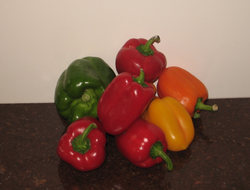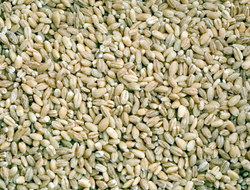Vegetarian meal planning to maximise essential nutrients.
Published: February 25, 2022
Are you getting sufficient essential nutrients in your vegetarian diet?
What are essential nutrients? Which nutrients may be deficient in a vegetarian diet? How can you ensure you are getting the essentials from your vegetarian diet?
To answer these questions read on.
The range of information concerning vegetarian eating practices can be confusing.
There are many books which discuss the philosophical underpinnings of various understandings of vegetarian eating.
Many books also provide nutritional guidance as well as a plethora of vegetarian recipe books.
Often books are the result of a single person's philosophy and experimentation with different vegetarian eating practices.
These books, when compared with other vegetarian orientated books, may conflict with ideas about which foods provide the best nutrition.
Different nutritional perspectives about supposedly "good" and "bad" foods such as carbohydrate and fat can also complicate the process of practising healthy vegetarian eating.
There are many reasons why people adopt vegetarian eating practices such as the perception that vegetarian eating is healthier than a diet which includes meat.
Vegetarian eating practices have been associated with improved health outcomes and decreased risk of several chronic diseases.
However, merely eliminating animal derived food products from your diet does not automatically convey health benefits.
Vegetarians who consume large amounts of fried vegetables, chips, cookies, baked goods, and other high fat, high sugar and highly salted processed foods are unlikely to obtain the benefits associated with a vegetarian diet.
Even when consuming healthy food vegetarian diets may lack one or more essential nutrients.
With such an array of information what can this course do for you?
This course will help you to be be confident that your vegetarian choices are healthy choices by:
- Understanding the benefits of vegetarian eating practices
- Understanding and minimising the disadvantages of vegetarian eating practices
- Learning how to plan your daily food intake to optimise the nutritional quality of your vegetarian eating practices
- Learning to know at a glance and with minimal calculation whether or not the food you eat provides you with all essential nutrients which support health
This course is for you if you:
- already practice vegetarian eating and are not sure whether your diet is meeting your energy and nutrient requirement
- are intending to take up vegetarian eating practices
- consider yourself "semi-vegetarian" and would like to learn more about vegetarian eating practices
- want to be able to construct your personal daily meal plan without relying on prescribed menus or having to calculate the amounts of each essential nutrient you require each day
There are several definitions of "vegetarian eating" and this course will focus on healthy vegan and lacto-vegetarian eating practices.
The course is intended to provide you with the appropriate information, guidance and feedback to enable you to develop your personalised and nutritionally balanced vegetarian eating plan.
References
1.
Whitney, E. & Rady Rolfes, S. (2005). Understanding Nutrition. Belmont, CA: Thomson Wadsworth
2.
Gropper, S.S., Smith, J.L. & Groff, J.L. (2005). Advanced Nutrition and Human Metabolism (4thEd.). Belmont, CA: Thomson Wadsworth.


